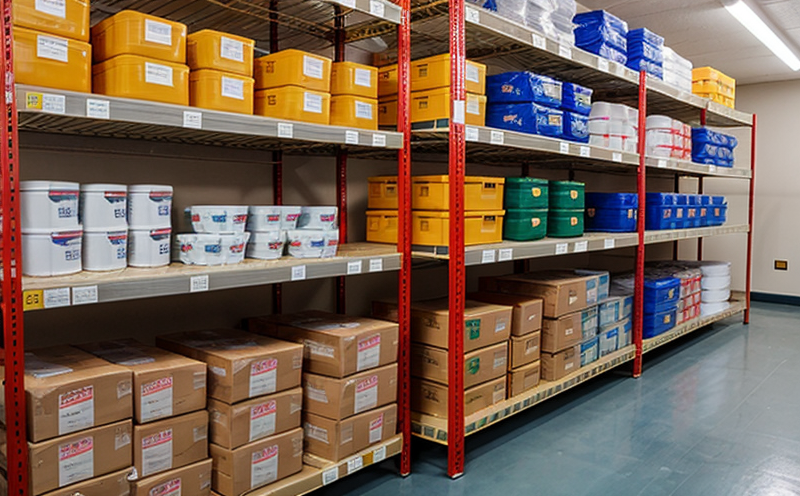Tablet Stability Testing
Tablet stability testing is a critical component of pharmaceutical quality management and compliance. The shelf-life of a tablet is directly linked to its efficacy and safety, making it essential for manufacturers to understand the potential degradation pathways that can impact product integrity over time. This service involves assessing the physical, chemical, and biological properties of tablets under controlled conditions to ensure they meet regulatory standards.
The process begins with selecting appropriate stability-indicating methods based on the drug substance and excipients used in formulation. These methods are designed to monitor specific degradation pathways that could lead to instability over time. The choice of test parameters is critical, as it influences both the accuracy and relevance of the results obtained.
Common test parameters include temperature, humidity, light exposure, and accelerated aging conditions, which mimic real-world storage scenarios more severely than standard shelf-life conditions. The laboratory adheres to rigorous protocols outlined in international standards such as ISO 17025 for quality management systems, ensuring that all testing is conducted under controlled and reproducible conditions.
The instrumentation used in these tests includes high-performance liquid chromatography (HPLC), Fourier-transform infrared spectroscopy (FTIR), differential scanning calorimetry (DSC), and thermogravimetric analysis (TGA). These tools provide detailed insights into the chemical composition, thermal stability, and potential degradation products of tablets. The testing process also involves meticulous sample preparation to ensure accurate and reliable data.
Once the tests are complete, a comprehensive report is generated detailing all findings and comparisons against established limits. This report serves as vital documentation for regulatory submissions and internal quality assurance processes. By providing thorough stability testing services, we help pharmaceutical companies maintain consistent product quality, thereby enhancing patient safety and satisfaction.
Customer Impact and Satisfaction
Effective tablet stability testing not only ensures compliance with stringent regulatory requirements but also significantly impacts the reputation of pharma manufacturers. By delivering accurate data that supports long-term storage recommendations, these tests enhance customer trust and loyalty. For quality managers and compliance officers, this translates into reduced risk of product recalls and legal issues.
R&D engineers benefit from detailed stability reports as they refine formulations to improve shelf-life without compromising efficacy. Procurement teams gain insight into supplier performance by comparing the results against established criteria. Ultimately, these services contribute to higher levels of customer satisfaction by ensuring that products delivered meet or exceed expectations.
Customer feedback is essential in refining our testing protocols and methods. By incorporating real-world use cases and industry trends, we continuously improve our offerings. This commitment to excellence has earned us a reputation for reliability and precision across the pharmaceutical sector.
International Acceptance and Recognition
The importance of tablet stability testing is universally recognized within the pharmaceutical industry. Regulatory bodies around the world have established guidelines that mandate compliance with certain standards, which align closely with those recommended by organizations like WHO (World Health Organization) and USP (United States Pharmacopeial Convention).
Our laboratory adheres to these guidelines through strict adherence to international standards such as ISO 17025. This ensures that our testing methods are recognized globally, thereby facilitating smoother compliance processes for pharmaceutical clients. Our expertise in this area has led to widespread acceptance of our services by key stakeholders including regulatory authorities and third-party auditors.
By maintaining high standards and continuous improvement, we ensure that our clients receive the best possible service while meeting all necessary requirements. This commitment to excellence is reflected in our consistent performance and positive feedback from satisfied customers worldwide.
Use Cases and Application Examples
- New Product Launch: Ensuring new products meet regulatory standards before market release.
- Formulation Development: Identifying optimal excipient combinations to enhance stability.
- R&D Projects: Monitoring changes in formulation over extended periods.
- Supplier Audits: Verifying supplier compliance with specified quality criteria.
- Packaging Optimization: Determining the impact of different packaging materials on product integrity.
- Process Validation: Assessing process changes to ensure they do not affect stability.
- Routine Quality Control: Monitoring ongoing production batches for consistency in quality.
In each case, our laboratory provides tailored solutions that address specific client needs. Whether it's a one-off stability test or an ongoing program of monitoring, we offer the flexibility and expertise required to meet diverse pharmaceutical challenges effectively.





